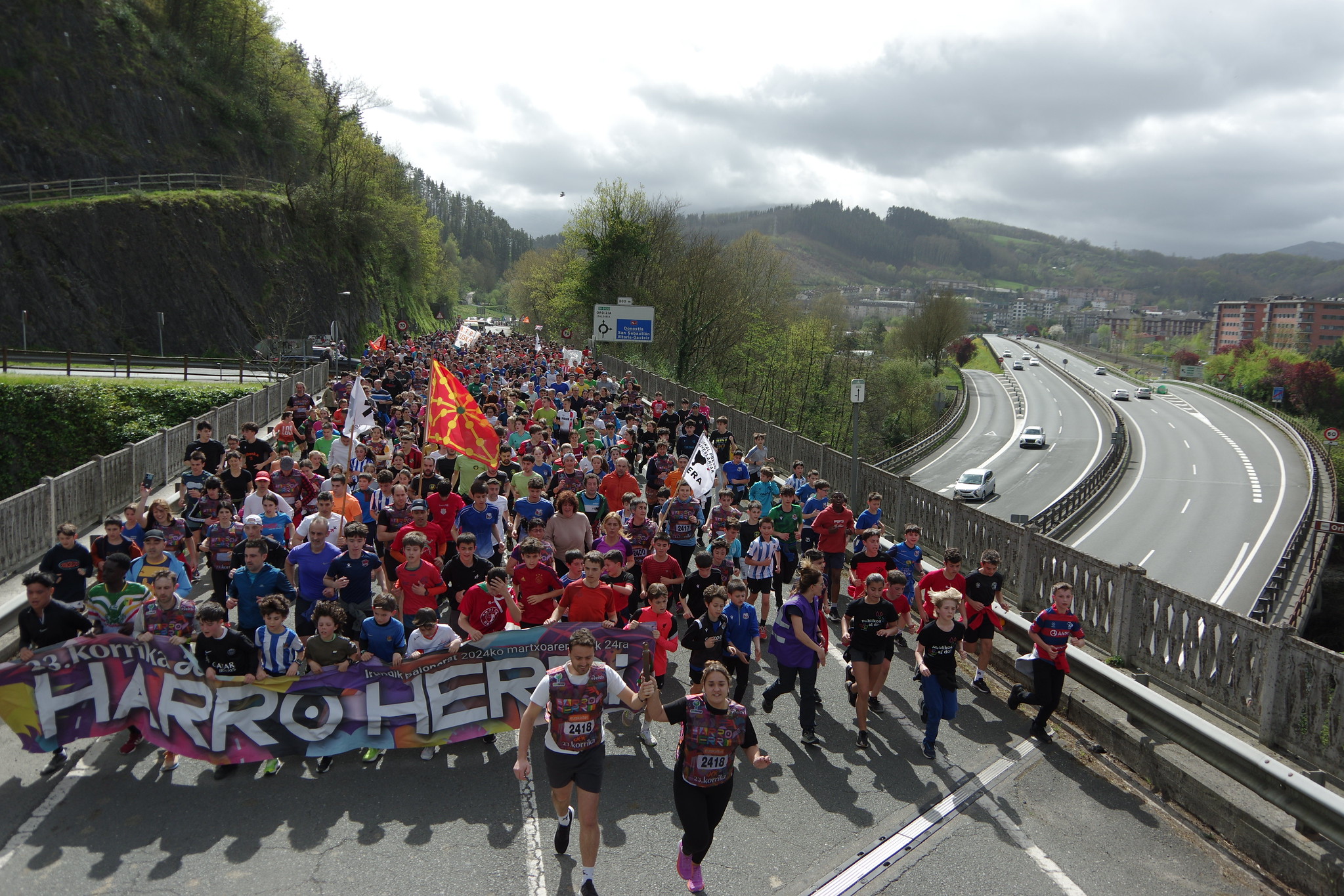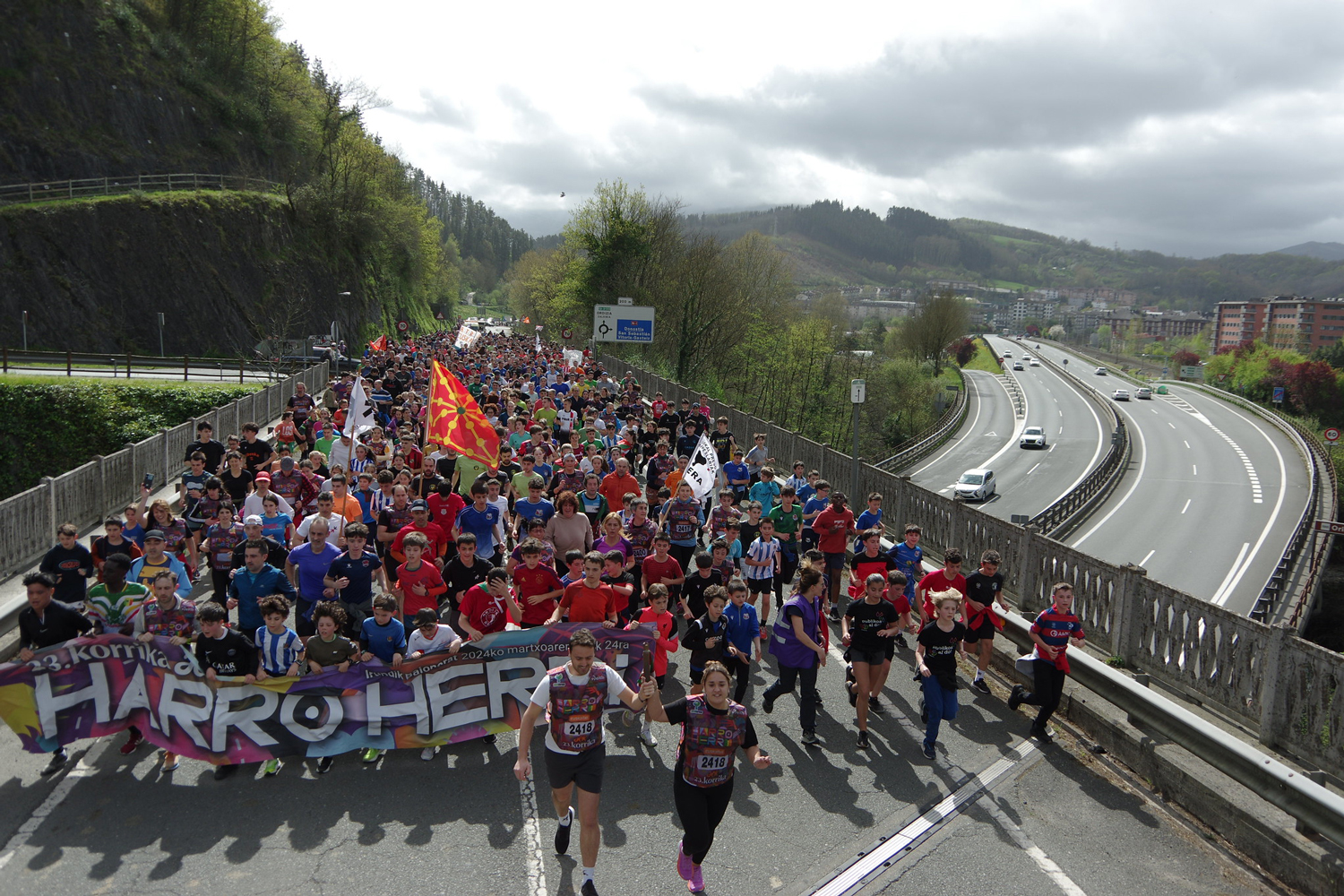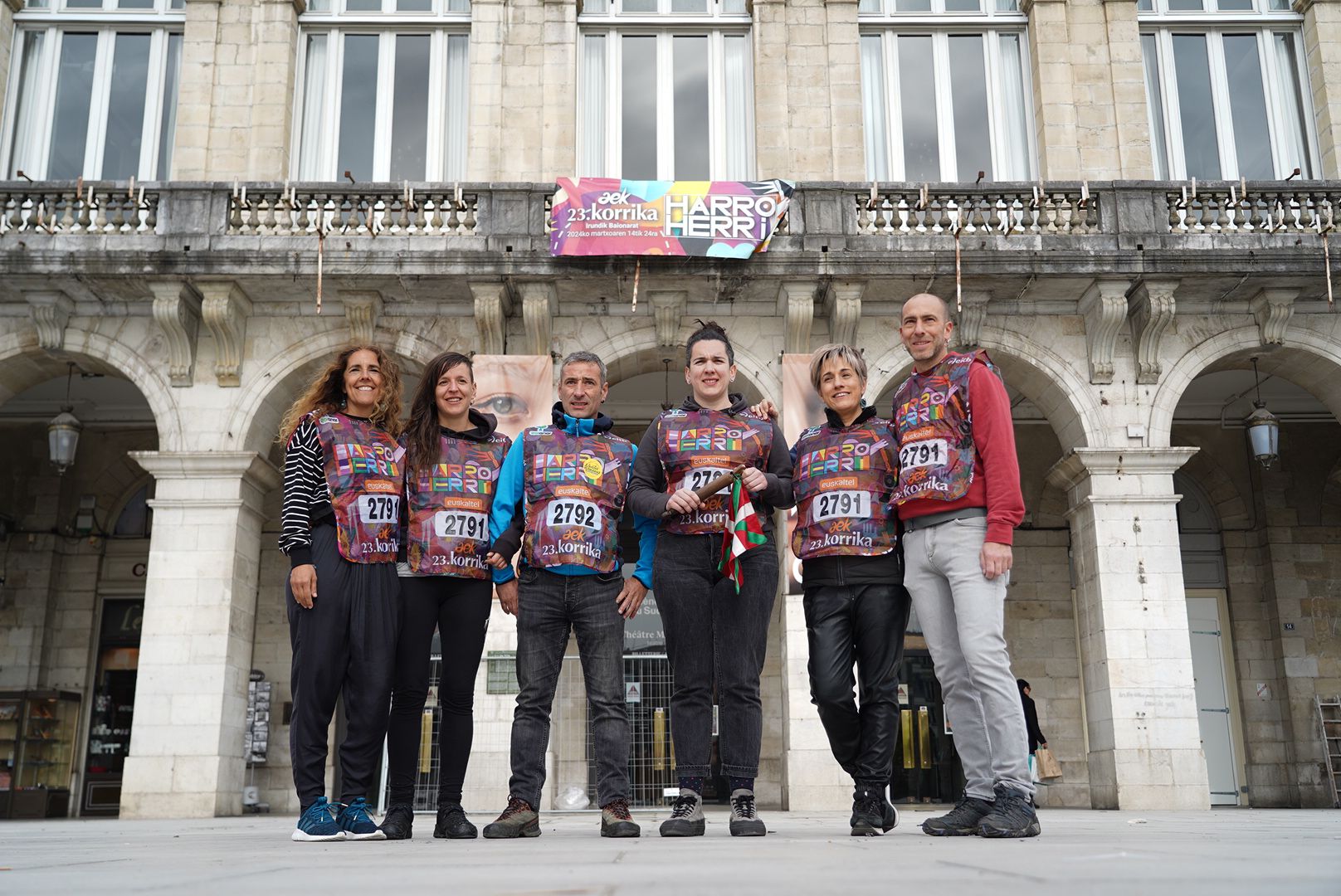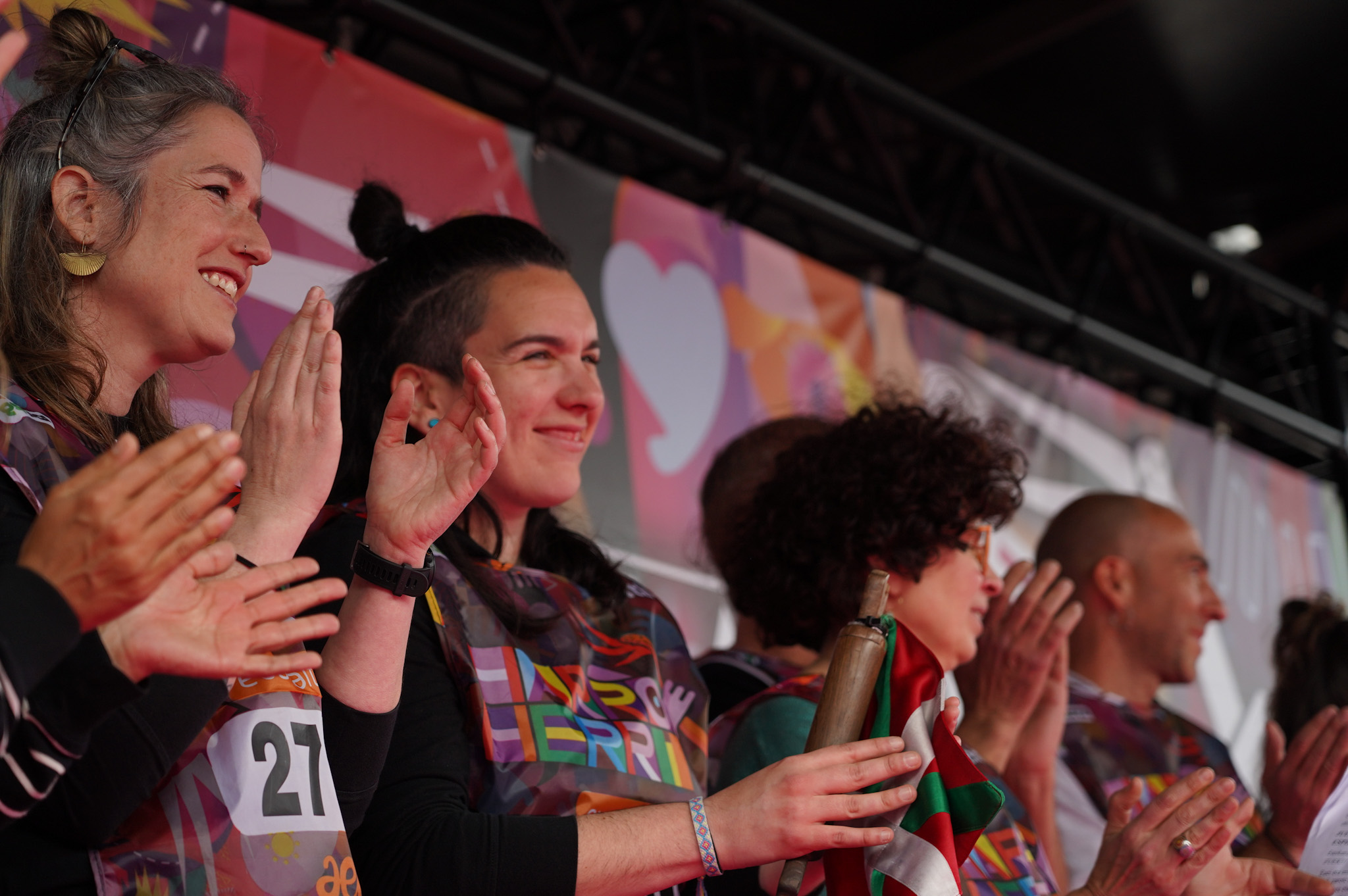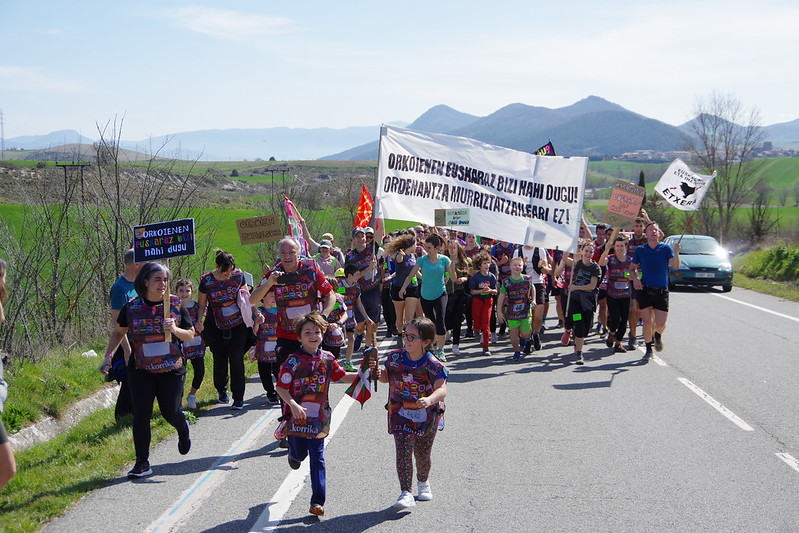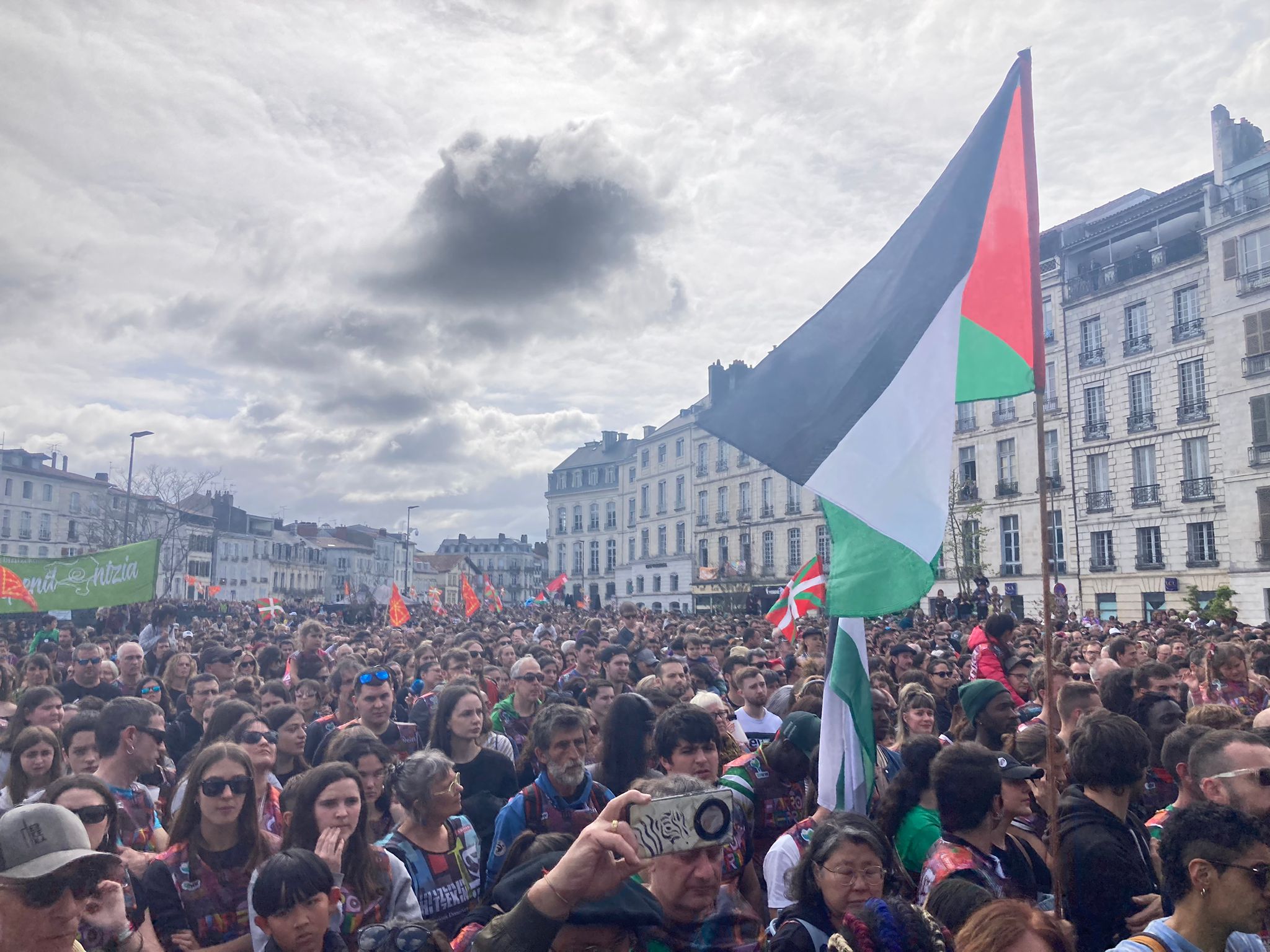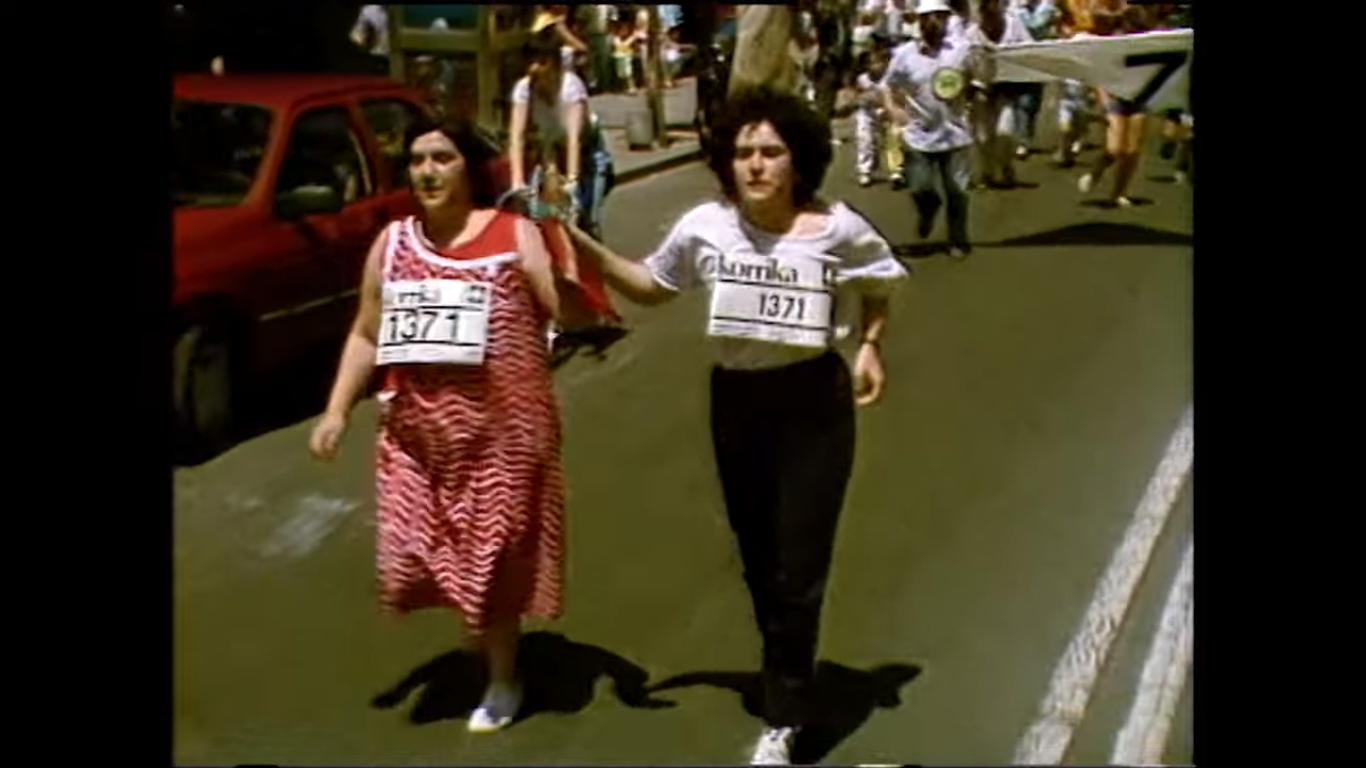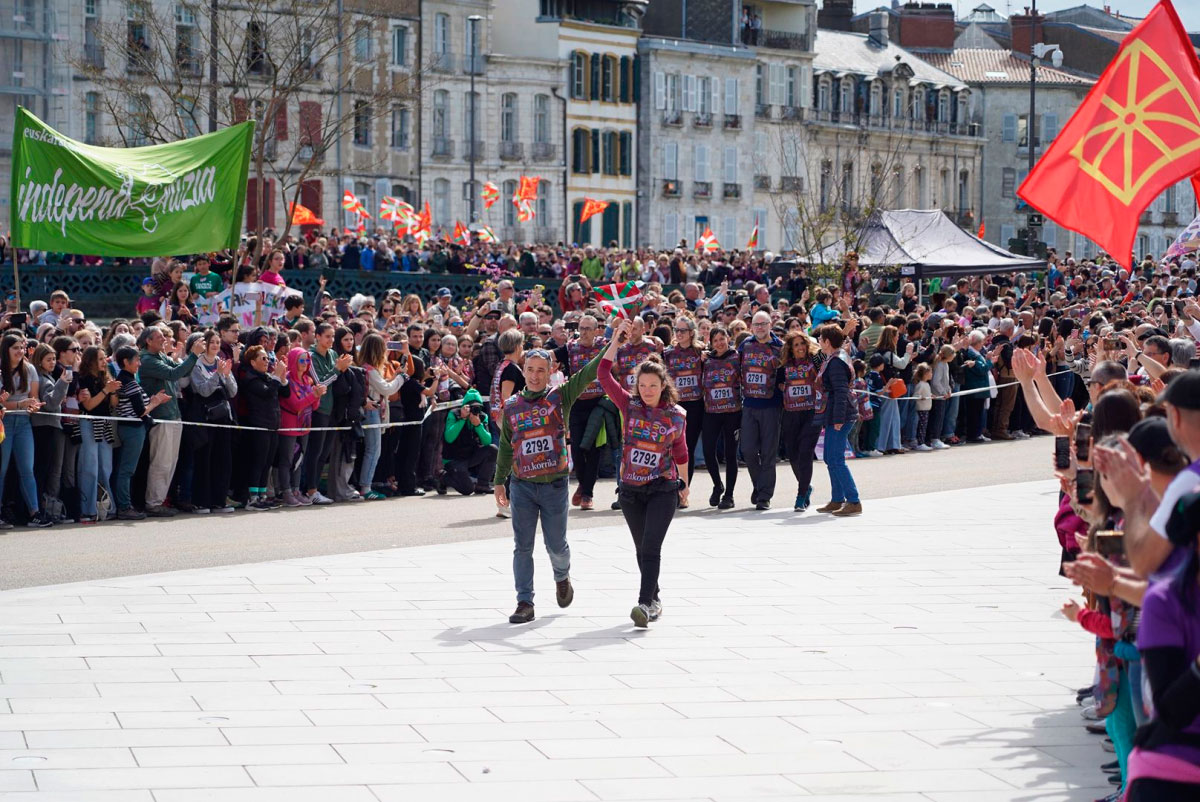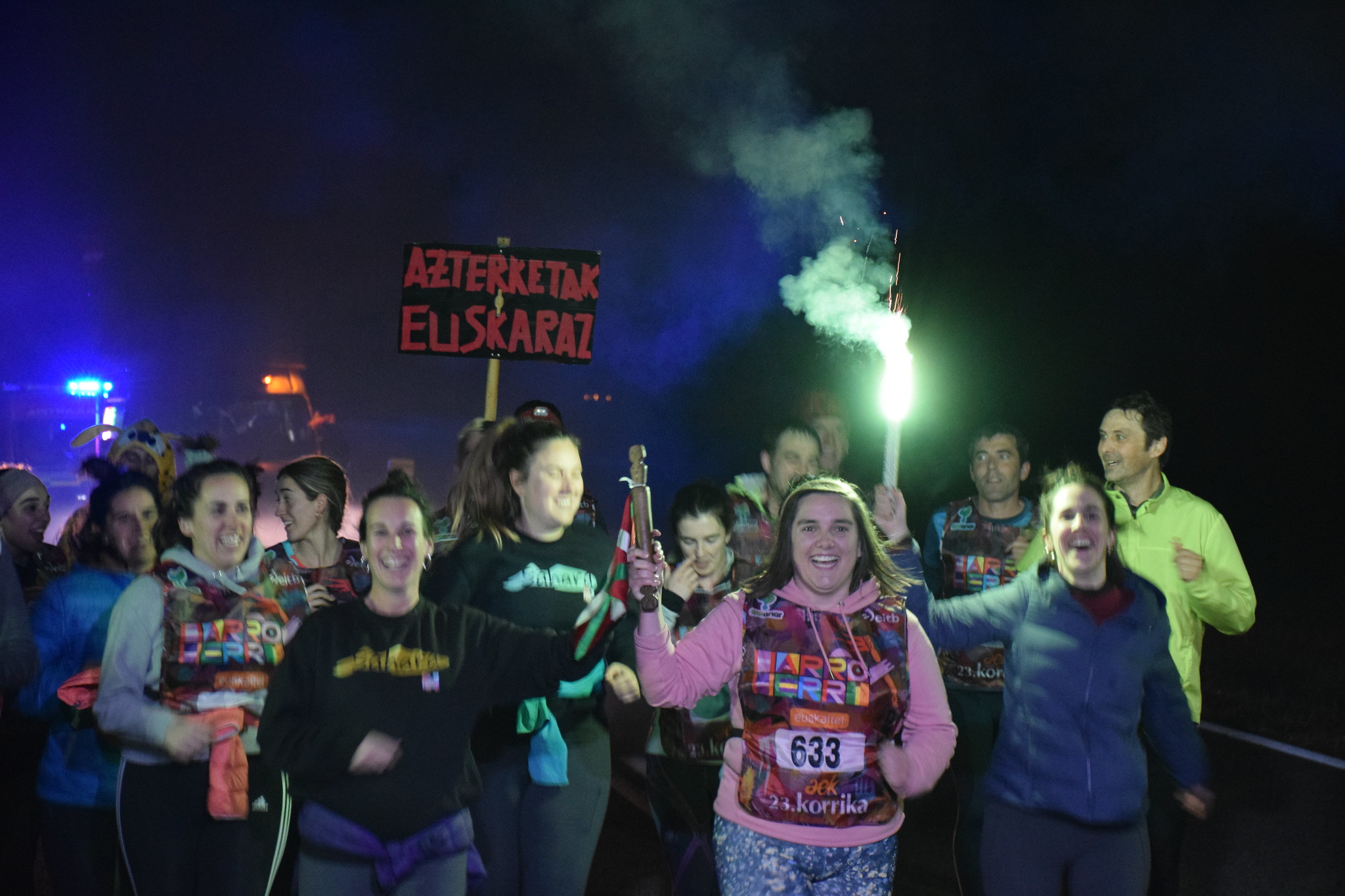“Each from our differences, but what unites us is the Basque”
- Korrika, the largest event in favor of the Basque country, is about to arrive, and Ane Elordi (Zornotza, 1991) is the coordinator of this enormous organization. In the course of the meeting, he has offered us a space to speak and, among other things, we have talked about what Korrika means for the Basque Country, although for AEK.
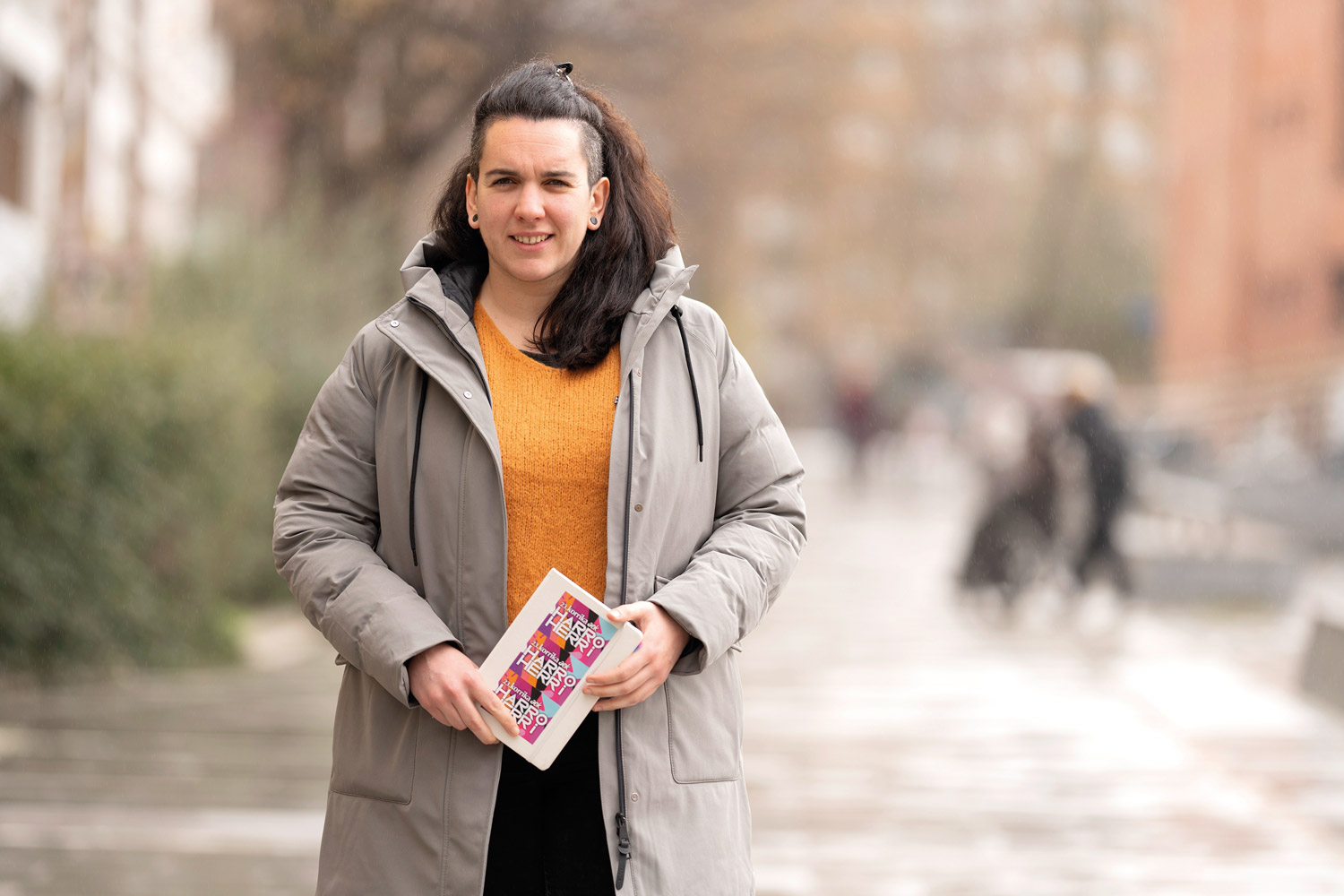
In 2022 he was elected coordinator. What does that mean?
This means that from now on, and all at a good pace, I will be the coordinator of the next four Korrika. I am a professor in Arratia [Bizkaia], and I have also worked in communication, but after assuming the responsibility of coordinator the works are others. The year of Korrika requires a hundred per cent, and it has to act in the national organization, directing the committee of the national bureau, transmitting information about Korrika abroad and relating to the agents.
How do you do it for now?
Right now. I have always told the Korrika that society welcomes him very well, and so, wherever you go, you find a nice atmosphere.
“Often the environment has told us: ‘Jo, and your father, being American, why not?’ Because we are Basques”
Tell us a little bit about your linguistic biography, your relationship with the Basque...
I have an American birth father, my Basque grandparents, but they've gone to work in America. My father was born there and at the age of 18 he returned to Euskal Herria, where he met my mother. My mother was not Basque, she is Basque in the Basque Country. Therefore, their relationship has been in Basque and Spanish, both. Then both my sister and I have been done in Basque. The environment has often told us: "Jo, and your father, being American, and English, why not? ". Because we are actually Basques. I have been able to do all the studies in Basque, and it is true that I can also live in Basque on a daily basis, but I am a zornotzarra, and our people are Spanish... That is our reality.
And when did you get interested in language?
I've always been interested. When I had to choose college studies, I wanted to do Basque Philology, but I was told at home, "What then? Do you want to write a book?” And I said, well, I don't know... And so I chose journalism and I did it very willingly. Then, after entering AEK, I've been an Euskera professor and I really like it. I think the contribution made by the communication world to being a teacher is very important, yes, you have to control the language, but how do you teach it?
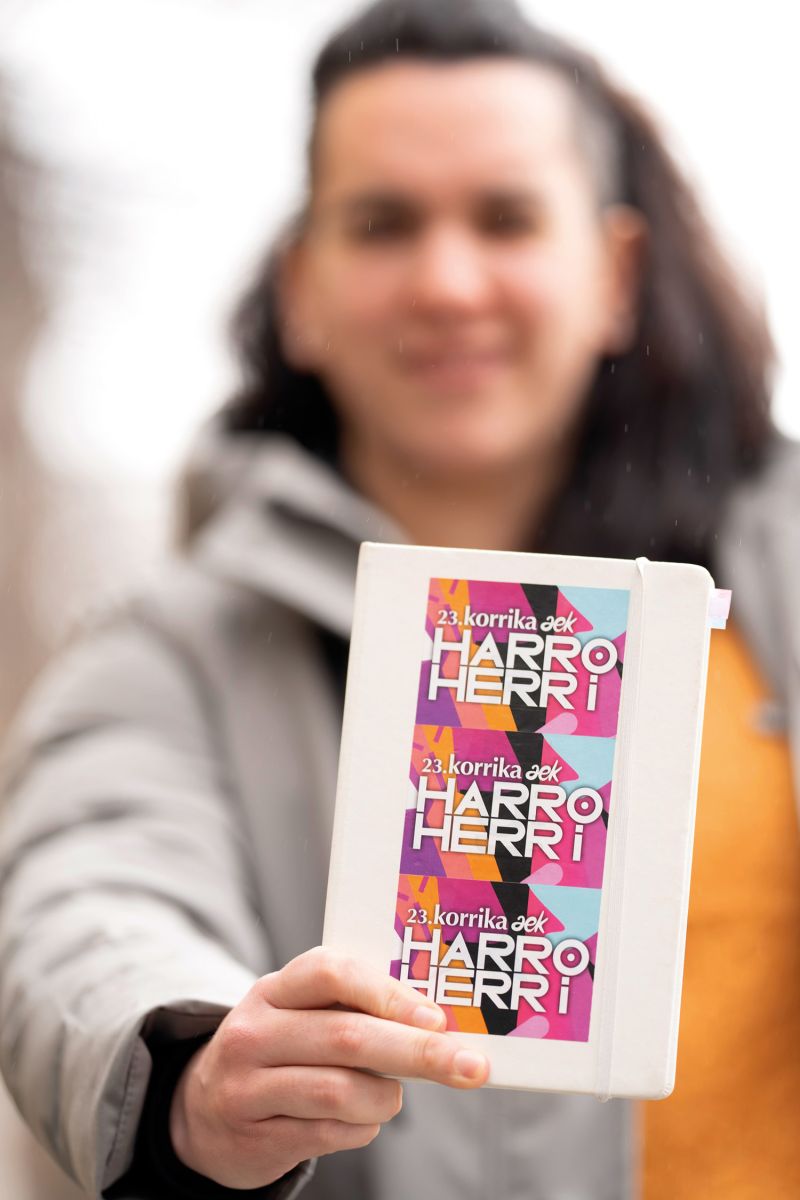
Remember your first Korrika?
Yes, something. I don't know if he was the first... I remember it was at night, I was 10-12 years old, and I was coming very late, an hour late, and how we were waiting in the bar, when it rained outside ...
And what is your most emotional memory?In the 21st edition
I was part of the van team and from there I saw another reality I had not seen until then. Because we, in Bizkaia, are in a very populated territory, and you see a mass of people as they move forward, but, for example, at night, or between weeks, in Álava or in Navarra there are not so many people, but perhaps the commitment of the people who are there is greater.
It is special, for example, the Gorbeia or the Pyrenees of Navarra. Or there are times when the witness is received by a certain person, or when tributes are made ...
The mass that moves the city is necessary: here we want to live in Basque and we come to collapse the cities. But we must also bear in mind the reality outside the cities.
“If our language is the Basque, and the Basque does not unite us, and we do not agree on it, there is little policy to do”
You've lived Korrika from many places, right? For you, what better to live Korrika?
Van inside. It's like streaming, you have people there all the time, you go in and you go out, and the moment you're a driver, you don't see the witness, but yes people, everybody's waiting for you, happy, you're willing -- it's the same race. We say that now many things are organized around the Korrika, which is cultural running, which is running small, but that the same race, that does not stop day and night… that is what mejor.Al yarn you say, around the
Korrika there are many more things organized, like cultural Korrika...
Yes, cultural Korrika is part of Korrika. In many places in Euskal Herria there was no cultural programming in Euskera, so at AEK we thought of programming the culture in Euskera as a gift of thanks to the contribution of people to Korrika, so we also tried to ensure cultural programming at the edges, at the periphery. In this sense we present a scholarship of 3,000 euros in the last edition, and hence the Badon project, the main cultural event of this edition.
How would you define Korrika to a foreigner?
If I defined it, I would define it this way: today, in the Basque Country, it is the most gigantic initiative in favor of the Basque Country, and it is the one that unites us with Basque citizenship. Korrika has succeeded in uniting different political parties, trade unions and agents around the Basque country, and that is what we have to do. If our language is Euskera, and if Euskera does not unite us, and we do not agree on it, there is little policy for hacer.Tambi also would tell those outside that
Korrika does not stop, that in twelve days we do not stay, and that our only limit is Euskera.
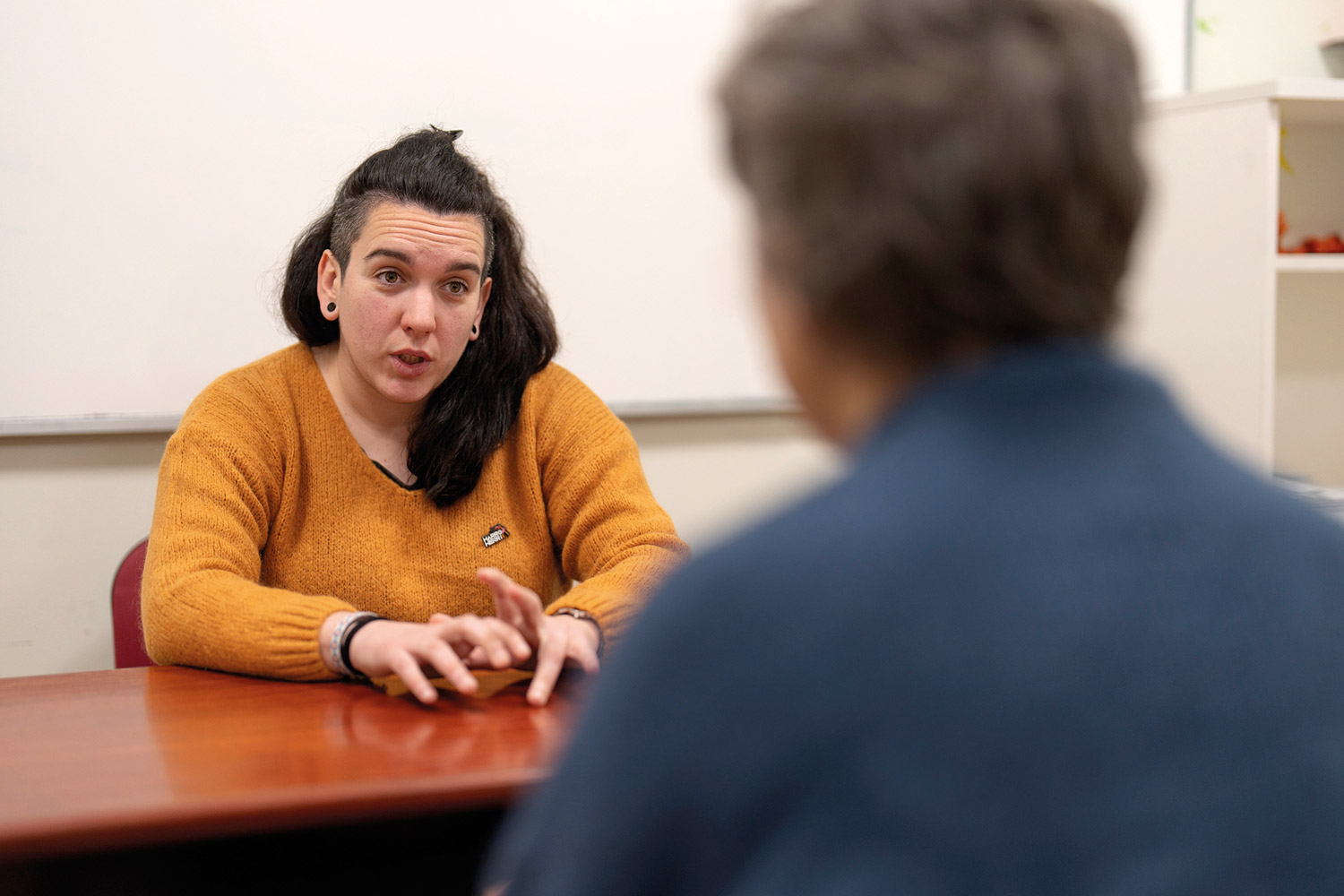
In the Korrika I see a kind of Basque metaphor ... In this sense, the Basque and the Korrika, both of them welcome different people, right?
Yes, and with this year’s motto we have also wanted to underline that. Proud, each as we are, contributing each with their opinion, color and origin, but the Basque unites us.
Tell us what the motto Harro herri means to you.
On the one hand, pride. Because our language is minority, we often live with complexes. For we have decided that we will live in Basque, and proud. We believe that Harro confirms the individual identity. The Basque makes us Basques, the language itself, and we are proud to want to live in Basque. And at the same time what we have said before, each from our differences, but what unites us is the Basque. And the motto is the call to create that country.
You say "Korrika jaia yes, but claim party."
What do you want to claim? Korrika
is often so emotional, and that euphoria, that joy is so refillable, sometimes we forget why we're doing it. It's been 44 years since the first Korrika, but the goals haven't changed. Awareness work is still pending. Yes, model D is there, for example, but it is clear that something fails in terms of Euskaldunization. We have work on it.
What is the process of consensus on the road?
We left on 11 January and it requires a lot of work. Inside the house we have agreed that, as it ended in Gipuzkoa, the beginning corresponds to Gipuzkoa. The finals alternate and in this case ends in Baiona. Once the end and start are decided, the itinerary is determined with the following criteria: We will tread all the peoples that we have the Basque Country of AEK, all the capitals and all the seven provinces. All of this, and considering other things, is a month-long job.
“The motto ‘I want to live in Basque’ is OK, but I want to live comfortable and not as if we were in a trench”
Is there a mistake?
Yes, always. Drawing the route isn't hard, but then what do you have? For example, we asked for traffic permits six months earlier, but I still know nothing, I have not received a reply. And there are things that emerge in the moment ... In the last edition we had a snowfall, and once the river came out of its course.
We have two vans, the one that goes in front never stops, the petrol tank also carries up and the rear one does. In the event of an anterior breakdown, the back passes. The maintenance team is four people all the way.
Is there a place where Korrika is not so nice?
I always say that today the Korrika, in some way, has hit the roof. As for the agents, everyone wants to join the Korrika and photograph it. It has become a little showcase. But a few years ago this was not the case, and we have also received the boycott. The beginnings were very difficult, but it went ahead and I believe that today we have succeeded in making Korrika for everyone, making them feel that everyone is welcome. And indeed, because the Basque needs everyone, and there we have to come together.
Put it in place, the AEK workers, but then there are a lot of volunteers.
Have you ever counted how many people are moving?
We're about 600 members at AEK, that's our base. In addition, committees of Korrika are created in each locality, with local agents, sometimes driven from the municipalities, or called by AEK members, but you cannot know. People get together to run, then they go back -- it's hard to tell. In the last edition, which ended in Donostia, nearly 80,000 people met. Much of the Basque Country is directly or indirectly involved.
Korrika is an important source of funding for AEK.
Yes, AEK cannot make economic progress without Korrika. In the CAV, in Navarre, and in the Northern Basque Country, in the three, we work and have agreed that we are going to work under the same conditions, but everywhere the subsidies are not the same, and we equate it with the Korrika.
What are the objectives of the Basque Country AEK?
AEK's goal is to be able to live comfortably in Basque. The motto I want to live in Basque is fine, but I want to live comfortably, and not as if we were in a trench. AEK wants to ensure a comfortable life.
And how do you do it? How many people do you teach classes?
We currently have about 10,000 students. We have an advisory service throughout the Basque Country. We make a positive reading, but we know that we need better language policies, such as real gratuity.
Because it is said that learning Basque is free, but not so, students must advance money. They get the money back if they pass the test. So do we have to guide the process of Euskaldunization only to exams? Before the students came because they really wanted to Euskaldunize, they were interested in learning Basque, living in Basque, culture. Today, everything is "giving paper."
Is there progress in gratuity?
Yes. This year, for example, a new line has been launched that allows young people between the ages of 16 and 18 to get a C1 degree in exchange for a EUR 20 tuition, and it has had a very good result, a lot of people have approached it. But we need for those who do not know anything the initial level to be free, especially for the people who have to do the whole road of Euskaldunisation.
We Basques move our feet behind the witness of Korrika to proclaim that we want to survive as a Basque people in favor of our language, with the aim of the Basque Country we desire.
The tipi-tapa is the first step taken by a migrant person who leaves his homeland in Africa,... [+]
Not more than a year living in Vitoria when I first saw Korrika. It was daylight, I was carrying my daughter in a backpack, and a bunch of speakers around me, and among those friends, Rosa, who is still beside me. About her daughter, what to say, is almost 14 years old, and in... [+]
For eleven days, from 14 to 24 March, the corners of Euskal Herria will run 23 March. Running. Photographs sent by AEK are being collected in this gallery.









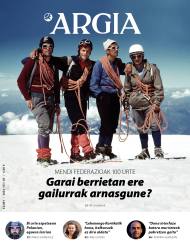

.jpg)


